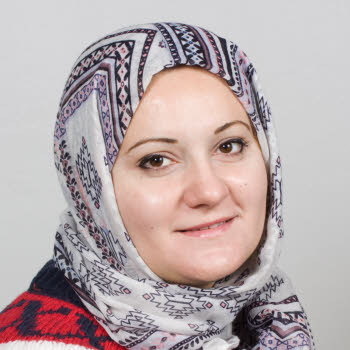Interview with Nacira Agram
Meet Nacira Agram, new associate professor in mathematics with specialization in mathematical statistics.

Hello Nacira. Talk to us about yourself and your background.
I am Nacira Agram, 35 years old. I got a PhD from the University of Biskra in Algeria. Then I was a Postdoctoral Research Fellow at the University of Oslo, Norway. I moved to Linnaeus University, Växjö as an Associated Senior Lecturer before moving to KTH as an Associated Professor.
What type of mathematics were you always interested in back when you started?
During my master studies at the University of Biskra, I was interested in stochastic analysis and optimal control and that is why I had written my PhD thesis about: Optimal Control in Infinite Time Horizon.
What can you tell us about the research you will be doing at KTH?
My main research interests are stochastic analysis with deep/reinforcement learning and related areas, including stochastic differential, integral equations and partial differential equations with memory and mean-field, backward stochastic differential equations, optimal control including singular control and optimal stopping, and with applications, mainly to finance, insurance and biology.
What is the importance of your research in our daily life?
I think a lot of financial institutions, including banks and insurance companies, need a lot of stochastic analysis e.g. for pricing and hedging, in particular after the famous Black-Scholes option pricing formula. The actions and policies of these companies affect our daily life, both directly and indirectly.
What achievement in your career so far are you proud of?
I am proud of what I have done so far because I do not like to follow other person’s paths, I like to solve my problems in my way. Together with co-authors I have constructed a Hilbert space of measure where we can use a Frechet derivative to differentiate a function of a measure. Moreover, recently, we have developed new deep learning algorithms to solve optimal control problems, which we believe can be used later in banks to find the price of an option. So far machine learning optimization methods have performed better than the old numerical methods. Moreover, machine learning is well suited to handle big data.
Do you have any other thoughts regarding your start at KTH?
I hope to contribute to a positive and creative research environment at KTH.
Danai Deligeorgaki
